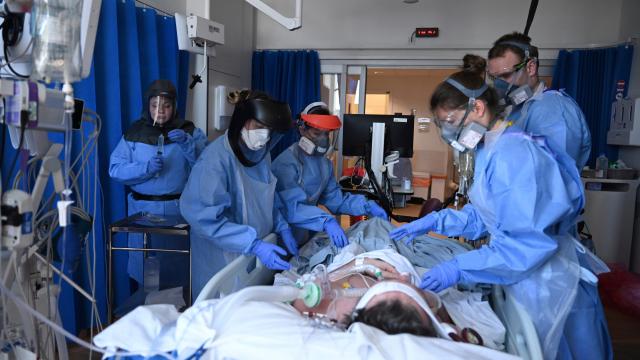The government of the United Kingdom has sparked a strong backlash from many in the scientific community by redacting large portions of a Scientific Advisory Group on Emergencies report advising ministers on the coronavirus pandemic, the Guardian reported Friday.
Members of the SPI-B, the SAGE group that produced the report, told the Guardian that the portions of the report removed before release to the general public criticised elements of proposed UK government responses to the pandemic in late March or early April. One SPI-B advisor told the paper the redactions were “bloody silly, and completely counterproductive,” while another said, “The impression I’m getting is this government doesn’t want any criticism. … This government has failed to show any self-criticism whatsoever, when it is glaringly obvious to everybody that big mistakes have been made.”
“If you want the trust of the population you hold up your hand and you say ‘we’ve made these mistakes, this is why they happened, we regret it, we’re learning from it,’” the second source added.
A third adviser told the Guardian, “What is recorded in the redacted document is us criticising those proposals. They were just not particularly well thought out.” A fourth told the paper that whether the redactions were purposeful or not, they were “deeply problematic” and “[diminish] trust and confidence.” At least one advisor has considered resigning.
At around the time of the proposed responses, Prime Minister Boris Johnson was floating confusing messaging about “herd immunity” that conveyed the strong impression he wanted at least 60 per cent of the population to become infected, while the overall UK response has been criticised as fragmented, uncoordinated, and tardy. However, the Guardian’s report specifically identifies policies that would have taken a more punitive approach to enforcing social distancing orders—such as limiting time people could spend shopping, harsher fines for violators, and mandatory self-validation of movements—as coming under criticism from members of the SPI-B board that thought the burden would fall disproportionately on disadvantaged individuals or backfire by undermining public trust and willingness to comply with regulations.
The UK government previously declined to identify who exactly was on the SPI-B board, resulting in wariness from some scientists that it was relying on a team of experts who couldn’t be independently vetted and whose recommendations were largely being kept secret. Former UK chief science adviser David King told the New York Times there was no valid reason to withhold the information: “Is the science being followed by the government on coronavirus? I don’t know, because I don’t know what the advice is, and there isn’t the freedom for the scientists to tell the public what their advice is.”
“Personally, I am more bemused than furious,” Stephen Reicher, University of St. Andrews social psychology professor and an advisory committee member, tweeted following the Guardian’s initial report. “The greatest asset we have in this crisis is the trust and adherence of the public. You want trust? You need to be open with people. This isn’t open. It is reminiscent of Stalinist Russia. Not a good look.”
